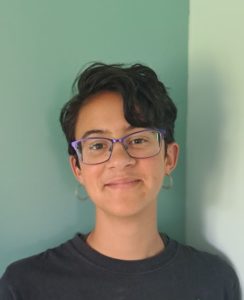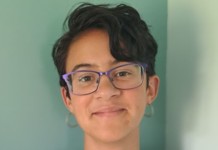by Zara Zrudlo

I am writing this article in response to Lorraine Rekmans’ letter to the editor in last week’s paper. I didn’t honestly realize it was heritage week, but I definitely agree that Indigenous heritage needs to be acknowledged. I believe that not acknowledging Indigenous history is a big fault of our system, and a reason for a lot of the discrimination Indigenous Peoples face.
If all of the atrocities that were, and continue to be committed, were taught about and broadly known, all of the old stereotypes would be proven wrong, and people would have less reason to be racist. Of course, what people DO with that knowledge is even more important, but the more people know, the better choices they can make. This is just my opinion though, there are many problems with the way a lot of the world sees Indigenous Peoples.
In the hope that people will understand how rich Indigenous cultures are, and how much of an effect colonization had, I have included information about the Algonquin Nation.
The Algonquin people had many relations to the Ojibwe and Odawa peoples, and together they form the larger group, the Anishinabek. The Algonquin nations lived in easily dis-assembled birch bark houses called wigwams. The nation was comprised of different communities. Their philosophies are: to take only what you need, recognize that you are an equal part of everything, and be thankful for everything you receive. They follow the seven grandfather teachings: honesty, humility, courage, respect, truth, wisdom and love.
From 1884 to 1951, the Indian Act banned Indigenous Peoples from holding powwows, from smudging and from many other traditions important to their culture. Many Indigenous children were taken forcibly from their families to Indian Residential Schools. There, the church tried to convert them into Catholics and make it so that they could “better assimilate into white society.”
However, many Algonquin traditions have survived, including the languages. The Algonquin language group is the most commonly spoken, however they are still endangered languages. There are many community-led efforts to bring back the languages, including university level language courses!
When the Crown first started colonizing this land, the Algonquin people had just been forced off their land by attacks from the Iroquois. They had to fight to prove to the government that this was their traditional land. Instead of being given a chunk of it, (a reserve) they were allowed to BUY some near Golden Lake. The government refused to give them the compensation they deserved for having their land taken by the Crown, they had to buy back a fraction of the land that they used to freely inhabit.
As a mostly white settler colonist, I believe that it is important to celebrate Indigenous culture, not just shove it off to the side and label it as ‘wrong’ or ‘savage and civilized’.
The website The Algonquins of Pikwakanagan First Nation is a great place to learn more about the Algonquin nation for those of you who want to continue your learning journey. Learning more can be hard, but it is very important, and I encourage you to be gentle with yourself, and take the time you need to process.






